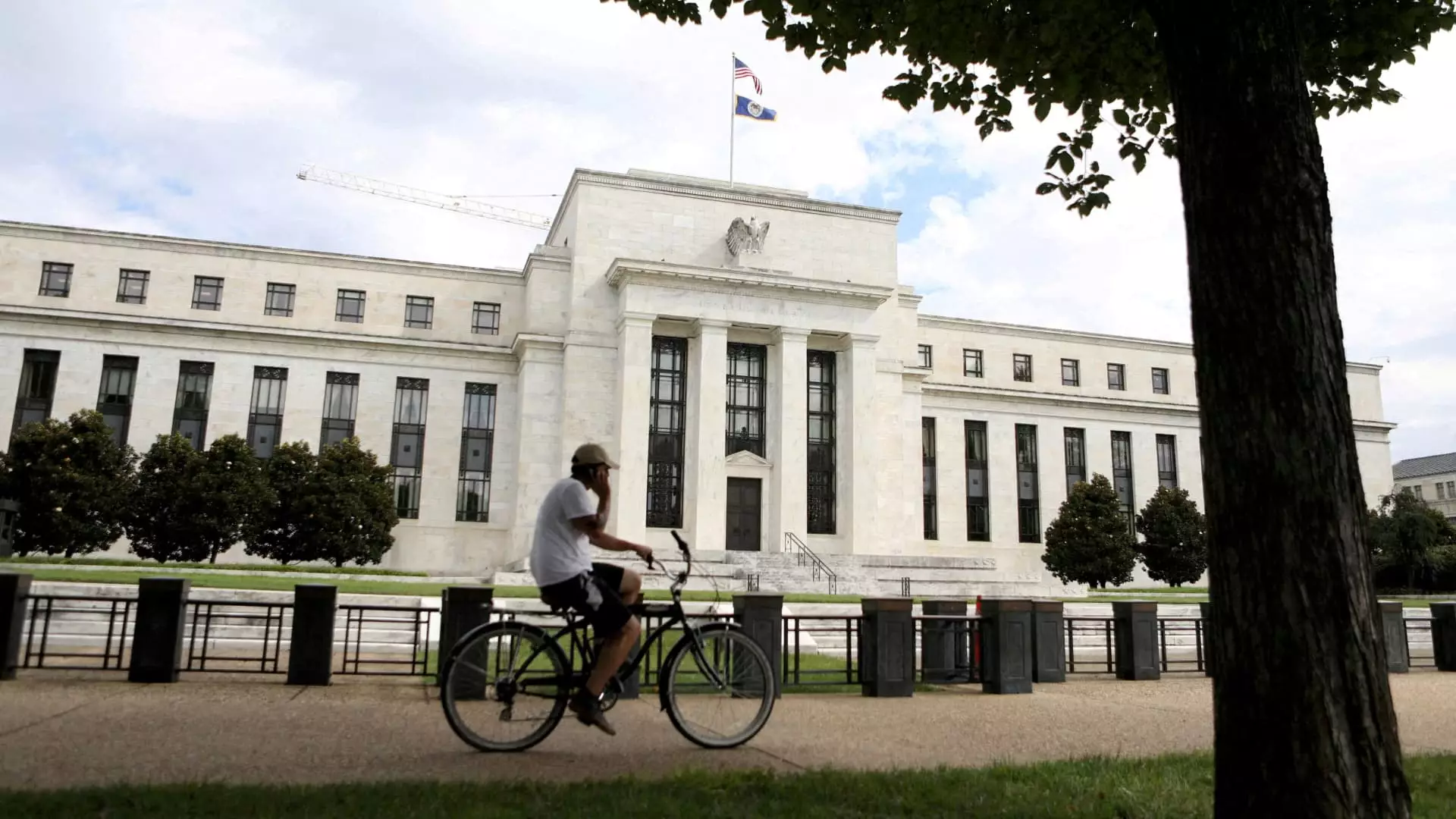In the complex world of finance, the independence of the Federal Reserve has always been a cornerstone of economic stability, yet recent interventions from political figures challenge this sanctity. Former President Donald Trump’s recent demands for the Fed to lower interest rates, claiming that “NO INFLATION” is present, exemplify a growing trend in which political figures attempt to manipulate economic policy for favorable headlines. Despite these pressures, Federal Reserve Chair Jerome Powell remains firm that monetary policy decisions should and must remain untethered from political whims. Yet, with a stronger-than-expected jobs report and inflation knocking at citizens’ doors, the Fed finds itself in a tough spot, grappling with the tension between maintaining economic independence and addressing the increasingly audible frustrations of American consumers.
The core of this challenge is the pressure of competing narratives—where the need for economic resilience clashes with the harsh realities of inflation and the burdensome costs borne by ordinary citizens. The idea that consumers should wait in perpetual hope for lower prices seems not only imprudent but also detached from reality. As rising costs persist, it’s evident that the average American is caught between fluctuating inflation rates and stagnant wages.
Tariffs: The Unsung Culprit of Economic Strain
The hope for the Federal Reserve to cut rates soon is overshadowed by the adverse effects of President Trump’s trade policies, specifically the tariffs that threaten to escalate consumer prices. Economists readily point out how such sanctions serve to deepen the economic woes of low-income families while inflicting broader harm on the economy itself. “Consumers are always the ones who pay the price,” notes Eugenio Aleman, but what does that translate to in real terms? It means more strain on household budgets, especially for those already skirting the line of financial instability.
The intertwining of tariffs and inflation creates a complicated web where the cost of living continues to climb without appropriate compensation in wages or social assistance. When businesses raise prices to offset tariffs, it inevitably falls on consumers—especially those with fixed incomes or entry-level jobs—who might find themselves unable to cope with the increasing cost of basic goods and services. This vicious cycle demands critical attention, yet the response from policymakers often feels muted, thus perpetuating financial inequity.
Interest Rates: The Broken Promise of Affordability
Credit card rates hovering just above 20% underscore a grim reality for American consumers grappling with significant debt. The Federal Reserve’s steadfastness in maintaining high rates is tangled with the banks’ hesitance to lend more freely in an uncertain economy. As Matt Schulz from LendingTree states, banks are playing it safe because economic uncertainty creates volatility in consumer behavior. The burden borne by credit card users becomes heavier when economic growth is predicted to be slow in the near term, keeping many pinched by double-digit interest on their borrowing.
Yet, the situation escalates when considering how rising rates apply not only to credit but also affect mortgages, auto loans, and student debt. Despite the slight dip in average fixed mortgage rates, potential homeowners find the drop insufficient to entice them into a notoriously stagnant market. The ramifications of high-interest rates become clearer when juxtaposed with surging prices in home and auto markets, exacerbated by the pressures of tariffs that artificially inflate costs.
A Future Enshrouded in Economic Ambiguity
The future remains bleak for consumers who wish for monetary relief alongside lower borrowing costs. With mounting credit card debt—now reaching worrying highs—the next few months appear poised to test the limits of financial endurance for many. While there may be slight adjustments to rates later this year, the overall sentiment reflects an economy rife with uncertainty and volatility, characterized by shifting policies and hesitant consumer behaviors.
Financial analysts suggest that in times like these, the best defense is a strong offense—namely, increasing emergency savings and focusing on curtailing high-interest debts. Yet these measures require a foresight that many beleaguered consumers may lack as they juggle numerous financial pressures without respite.
At the heart of the economic situation lies a pressing need for ethical governance that prioritizes the well-being of the most vulnerable members of society—a call that politicians often echo, yet consistently fail to deliver. So as the economic narrative unfolds, one can only hope that the loudest voices demanding change are those that prioritize long-term stability over short-term political gain.

